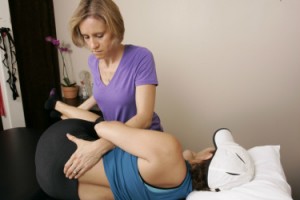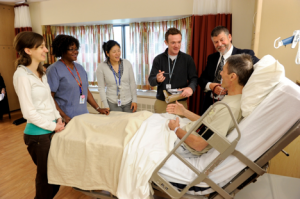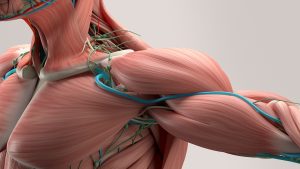Welcome to my third blog in my ‘So you want to be a physiotherapist…?’ series. I hope the last two have been worthwhile reading, and that you are now adequately prepared to begin your physiotherapy degree.
In this month’s blog, I will be discussing the experiences of my first year. What I learnt and in hindsight what I feel I could have perhaps done better during the start of my physiotherapy degree. It’s worth noting that my experiences may differ to yours as the syllabus will vary between universities however this knowledge should still be transferable in most aspects.
The Biopsychosocial Model of Health Care
It is key to understand this concept from early on within your physiotherapy degree. Why? Physiotherapy is much more than just hands on assessment, exercise prescription and rehabilitation, and you will witness this when you start placements. People have ranging emotional experiences to their illness and their thoughts, feelings and beliefs will play a large part in their rehabilitation. Rapport and collaborative goal setting will be key in terms of patient adherence.
My first day involved learning about this model of health care and this was developed on throughout my 3 years. It’s important to understand the psychological paradigms around health beliefs and learning about how you can adapt and tailor your approach to each individual patient in order to deliver a more holistic form of health care delivery. Yes, we all enjoy learning anatomy and learning the practical aspects but having a good understanding and considering this model early on in your studies will make you a much better clinician moving forward.
Multidisciplinary Team (MDT) Work
You will start to identify with this more once you begin your placements but within the health service, Physiotherapists seldom work by themselves and work in collaboration with occupational therapists, speech and language therapists, dietitians, nutritionists, psychologists and consultants just to name a few.
King’s College understand this and from the very beginning of my degree instilled this MDT working ethos by organising a marked presentation with people from other modules in order to improve our communication skills and understanding the strengths and weaknesses of other team members and I feel it helped me when I went onto my first placement.
Begin to understand the roles of other professions that you may encounter and consider how you may work with them to enhance your treatment sessions.
Anatomy!
Anatomy and Physiology is key to our profession – we are experts in this field so it is no surprise that your first year will involve a lot of anatomy teaching. We were fortunate enough to have an amazing anatomy lecturer but you must go away and consolidate your own learning. Once you get going the information comes at you thick and fast so you must keep up with it! As mentioned in previous blogs, anatomy flash cards and booking rooms with friends for Q&A’s will be a massive advantage.
Having a solid understanding of anatomy and being confident with it is crucial for everything you do moving forward – practical sessions and more importantly when you start to go on placement. Repetition with this is key!
Practical Sessions

I think it’s fair to say that a number of my peers, and me to some extent, thought that prior to commencing our studies there was a golden rule book for examination and management. Well, there isn’t one. Our practical sessions comprised of basic passive, active and resisted examination techniques for a given body part, some special tests such as neurodynamics and some potential treatments / exercises. You will come to learn that there are LOTS of examination techniques and not only would it be difficult to go through every single one, it will also be very difficult to remember! Plus, you will also learn when you begin to look at evidence that some of these tests have low sensitivity / specificity and are therefore of little clinical value.
As per my previous blog, there are some great resources that go through these tests and there are some that you should be aware of, but don’t expect to be taught all these. The ABSOLUTE KEY is to combine your practical sessions with anatomy knowledge and consider what anatomical features you are moving and what wold you expect if they were to be at fault. This is the foundation of clinical reasoning and if you start to consider this early on in your studies then it set the stage for the rest of your degree and indeed your career.
Exams
Unfortunately, there is no getting away from exams and you will encounter a number of these across your three years. At King’s College London, these were divided into two types:
- Written: First year exams for me were mainly targeted towards our understanding of anatomy and physiology in all three specialities of musculoskeletal, cardiorespiratory and neurology. They can range markedly from origins and insertions of muscles, nerve pathways through to definitions, rehabilitation and interpretation of clinical information.
- OSCE’s: There isn’t anyone I know who undertook the physiotherapy programme who wasn’t nervous about these. OSCE’s stand for objective structured clinical examinations and are common in health care programmes. These exams involve a number of varying different stations, lasting approximately 5 – 6 minutes per station, and will present a situation / topic where you have to demonstrate manual examination, handling, or rehabilitation techniques with a colleague as a role model and an examiner marking you. You are usually given a basic overview of what the OSCE will consist of, allowing you some way of preparing for it. Lastly, try not to let the nerves get the better of you (easier said than done!). The examiners are not in any way trying to trick you. They want to ensure you will be safe clinically when you embark on your placements.
Essays
 These will also count towards you overall mark and will vary on content dependant on which department set it for you. The biggest piece of advice and what helped me was to start it early. Even if you start by bullet pointing items or writing down some rough ideas then you can build on this over time. As already discussed things will come at you thick and fast so it’s best to make a start early on. Once you have completed a draft, go over it again, give it to friends and family to read to get a broader appreciation of your work.
These will also count towards you overall mark and will vary on content dependant on which department set it for you. The biggest piece of advice and what helped me was to start it early. Even if you start by bullet pointing items or writing down some rough ideas then you can build on this over time. As already discussed things will come at you thick and fast so it’s best to make a start early on. Once you have completed a draft, go over it again, give it to friends and family to read to get a broader appreciation of your work.
Placements
I feel as though the topic of placements is a very important one and will require a separate blog piece and therefore I will not go into detail here. Universities vary with the amount and timing of placements and I know some students at other universities started as early as January.
These 5 / 6 week placements are a great opportunity to apply the skills and knowledge from your first year to real patients. It also provides an opportunity to work with various members of the multidisciplinary team and provide an insight into the working environment of the physiotherapist.
Don’t be afraid to ask questions
Topics and information comes at you rapidly in this course with complex terminology and other aspects which are often difficult to comprehend. Therefore, if you have a question, no matter how trivial you feel it may be, ASK IT! Chances are it’s not just you who is thinking it! Physiotherapy is a lifelong learning curve that exceeds well beyond your education at university so get used to asking lecturers, colleagues, peers, clinical educations and even members of the multidisciplinary team.
Be Organised!
Over the course of the year you will get numerous hand outs, lecture slides, papers, notebooks, diagrams and many more. I made sure that I kept myself organised with proper folders (one for each module) each divided into the respective topics and subtopics. I would put the notes from the week into a tray, and then over the weekend go over them and file them into their respective folders. It certainly helped me keep on top of the significant workload, and by going over my notes once more before they got filed just reinforced the learning on that particular topic.
Although everyone was a little apprehensive at the start of the year you will soon find your feet and I can promise you that your first year will be over before you know it. It was very enjoyable although at times the workload did become a little overwhelming, however it is extremely rewarding when the pieces start to come together and the very foundation of your knowledge has been laid down.
It’s when you go onto clinical placements when things really begin to fall into place and are incredibly important in consolidating your knowledge into a real-life setting. It is this topic that I will discuss in next month’s blog piece, offering an insight into my experiences and offering advice to help you get the most out of your clinical placements. See you next time!

